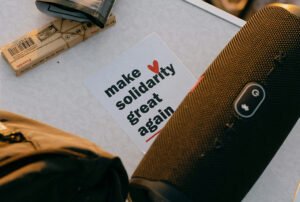May 7, 2014;The Guardian
On Wednesday, a number of groups began an in-place protest in front of the Federal Communications Commission building in Washington, D.C., vowing to remain there until at least May 15th, when the FCC is scheduled to consider a new proposal regarding “net neutrality,” the notion that traffic on the Internet should not be given preferential treatment based on its origin or source.
#PeoplesFirewallFCC still going strong at #SaveTheInternet encampment, @FCC in DC. Join us! http://t.co/YWvCteP5Uipic.twitter.com/bRjhWRaXN9
— Fight for the Future (@fightfortheftr) May 9, 2014
Sign up for our free newsletters
Subscribe to NPQ's newsletters to have our top stories delivered directly to your inbox.
By signing up, you agree to our privacy policy and terms of use, and to receive messages from NPQ and our partners.
Groups such as Fight for the Future, Popular Resistance, and others have taken up Occupy-style tactics to sway the Commission into rejecting the proposal, which would turn the information superhighway into something of a toll road, with “fast lanes” available to those who can pay. Well-financed players could thereby use their financial sway to minimize competition and reduce innovation. (Ironically, big online dogs like Google, Amazon and Facebook are proponents of net neutrality; they, among a hundred other technology-centered companies, signed a letter to the FCC decrying what they saw as the onset of “individualized bargaining and discrimination” for Internet traffic.)
If the assembled protestors could be said to have an ultimate goal, it would be to have the provision of broadband Internet considered “a ‘telecommunications service,’ so it can be regulated in the public interest, like a utility, reversing a Bush-administration decision to class it as an ‘information service,’ a move that limits the government’s control.” One member of Fight for the Future, Evan Greer, called the Internet “as necessary to our society as shelter and water, people should have equal access to it.”
One of the backers of the push to keep net neutrality, if not necessarily the camp-out style of protest, is Senator Al Franken. He released the video below on Wednesday, along with the hashtag #NoSlowLane.
President Obama came out in strong support of net neutrality back in 2010, but he seems to have gone silent on the issue as of late.
We remember the SOPA/PIPA protests of 2012, which were successful in fending off attempts to cripple the Internet’s backbone in the name of fighting online piracy. Let’s hope the efforts from the tech companies, Washington reps, and avid Internet users combine to equally great effect.—Jason Schneiderman













